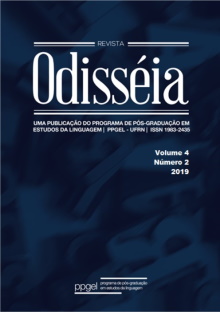Linguistic insecurity in Kirundi speakers
a case of intranominal and intraverbal code switching expressions
DOI:
https://doi.org/10.21680/1983-2435.2019v4n2ID17851Keywords:
Insecurity, Languages, Code switching, KirundiAbstract
In this study on intranominal and intraverbal insecurity in Kirundi speakers, we adopted the qualitative method. This method was applied to data collected in the three communes of Bujumbura, capital of Burundi (Ntahangwa, Mukaza, Muha). It consists of ten (10) conversations, recorded in different and varied socio-professional areas. It has been noticed that the use of intranominal and intraverbal code switching expressions by Kirundi speakers represents an important framework for expressing linguistic insecurity. On a purely segmental level, the maintaining or the partial change of the borrowed elements give rise to a limited adaptation, a hypo and a hyper adaptation. The same impression of “linguistic inferiority” in Kirundi is equally detectable in some functions linked to the above stated language hybrids. The recourse to the latter is in some ways coerced or prestigious, sometimes abusive and/or erroneous.
Downloads
Downloads
Published
How to Cite
Issue
Section
License
Thisa work has been licensed under Creative Commons - Atribuição - NãoComercial - CompartilhaIgual 3.0 Não Adaptada.


















